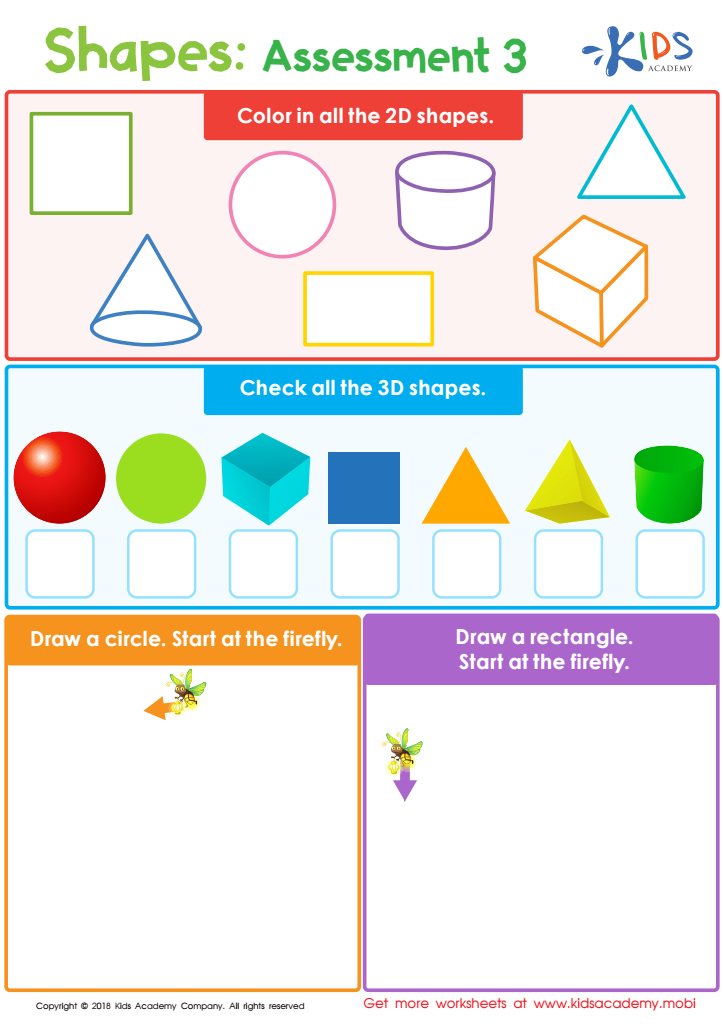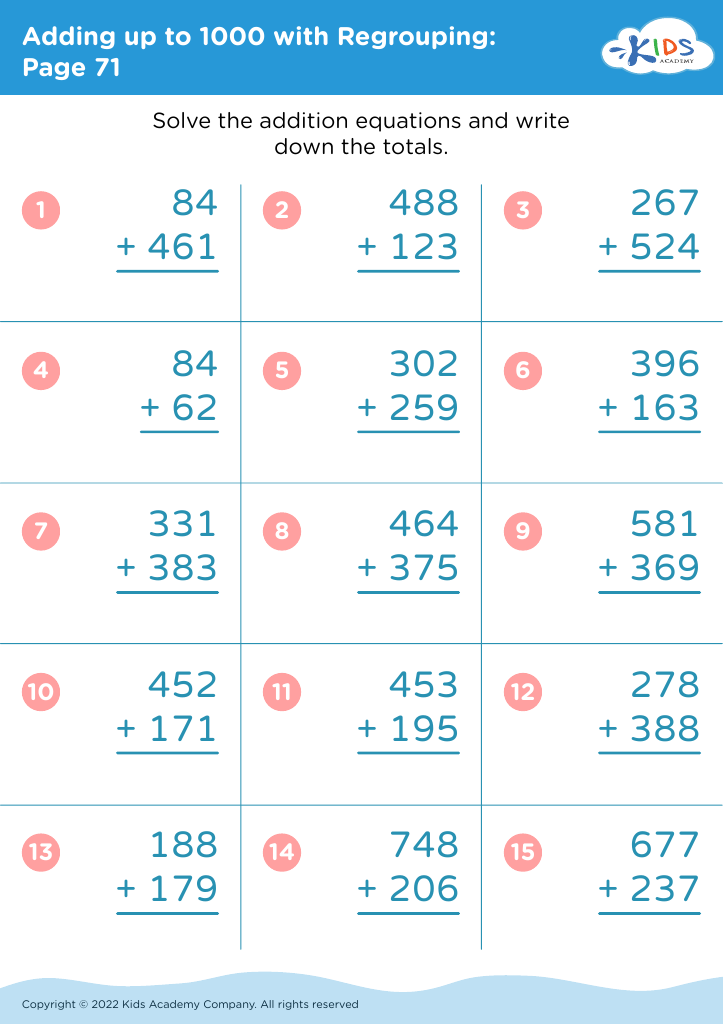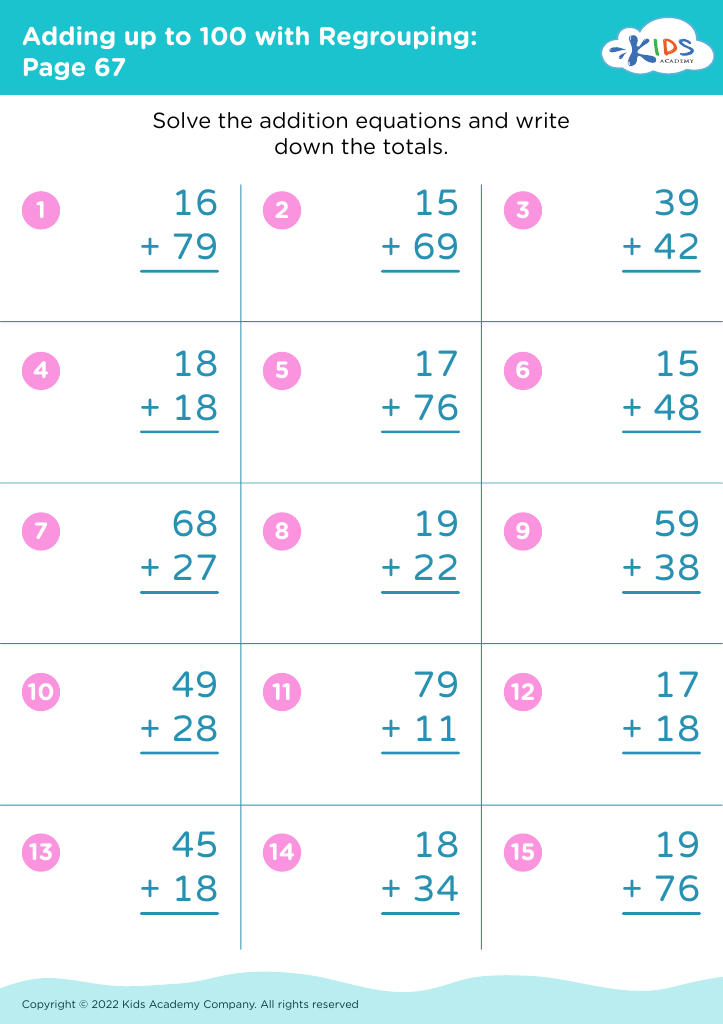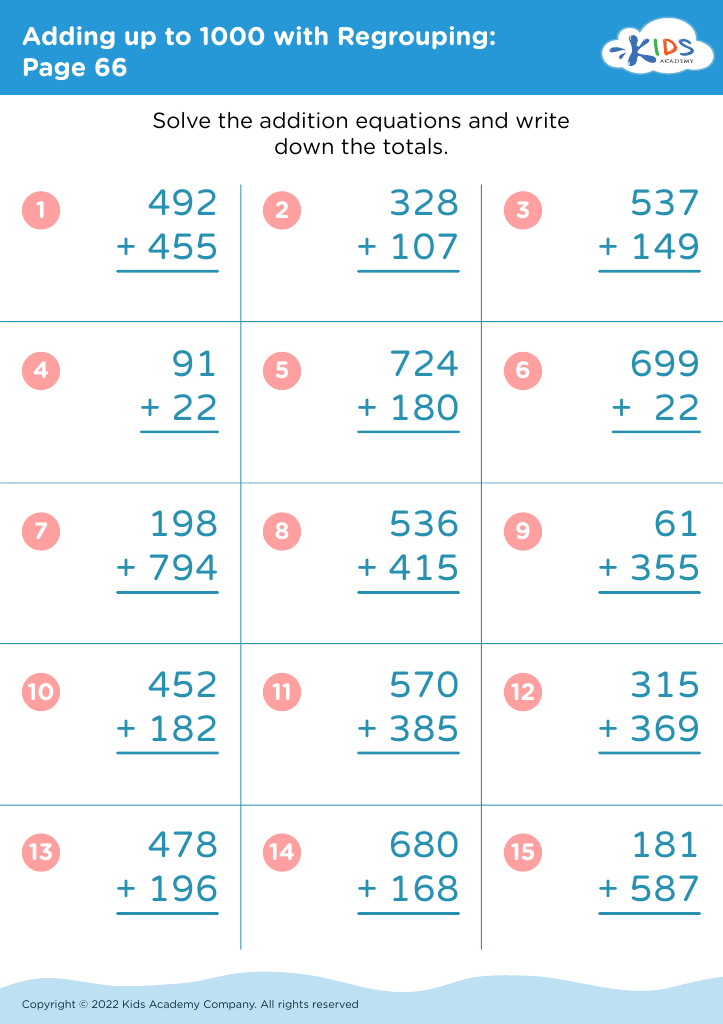Enhances number recognition Math Worksheets for Ages 3-7
5 filtered results
-
From - To
Discover essential Math Worksheets designed to enhance number recognition for children ages 3 to 7. Our engaging resources support early learning with a variety of fun activities that encourage young learners to identify and understand numbers confidently. These worksheets are crafted to promote visual recognition, counting skills, and the connection between numerals and quantities. Featuring vibrant illustrations and interactive exercises, children will enjoy exploring numbers while developing foundational math skills. Perfect for classroom use or at-home learning, our worksheets pave the way for a strong mathematical foundation, making learning enjoyable and effective. Start your child’s number recognition journey today!


Shapes: Assessment 3 Worksheet
Enhancing number recognition in children aged 3-7 is crucial for their mathematical development and overall cognitive skills. At this early stage, children are forming foundational understanding of mathematics, and strong number recognition helps in building essential skills for future learning. Parents and teachers should care about this development for several reasons.
First, number recognition fosters a sense of confidence in young learners, enabling them to engage more fully with math-related concepts. This confidence can translate into improved problem-solving skills and a positive attitude towards math as they advance in age.
Second, early math skills are linked to long-term academic success. Research indicates that strong early number recognition can predict later achievement in math, showing its impact on overall educational trajectories. Furthermore, engaging with numbers enhances children's critical thinking and analytical abilities, essential skills that extend beyond math.
Finally, number recognition activities can be easily integrated into everyday interactions. From counting objects during playtime to reading number-themed stories, simple practices can enrich a child’s learning experience. By prioritizing this aspect of early education, parents and teachers can lay a strong, enduring groundwork for lifelong mathematical competency.


 Assign to My Students
Assign to My Students



















